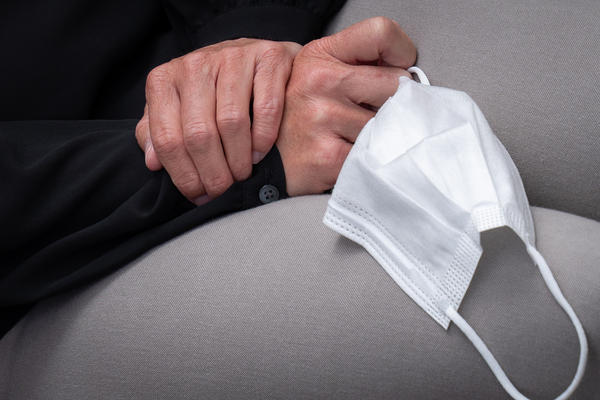Lots of people have questions about getting vaccinated against COVID-19. That includes the millions of Americans with weakened immune systems that put them at higher risk of severe disease if they do get infected with the coronavirus.
“Patients want to know whether it’s safe to get it and, if they do get it, which one should they get? And of course, they also have concerns about how it can affect their own condition as well,” says Dr. Sharon Dowell, a rheumatologist at Howard University Hospital in Washington, D.C., who says she has been getting a barrage of questions from patients lately.
Got Questions About Johnson & Johnson’s COVID-19 Vaccine? We Have Answers
SHOTS – HEALTH NEWS
Got Questions About Johnson & Johnson’s COVID-19 Vaccine? We Have Answers
People can be immunocompromised for a wide range of reasons. Some are being treated with immunosuppressive medications for conditions such as rheumatoid arthritis, lupus, Crohn’s disease or psoriasis. Others are organ transplant recipients on powerful anti-rejection medications or cancer patients receiving chemotherapy.
Dowell and other doctors say vaccinating immunocompromised patients is especially important. But it also raises special considerations that these patients should discuss with their doctor beforehand. Here’s what you need to know.
The COVID-19 vaccines are safe for people who are immunocompromised.
When it comes to giving patients with impaired immune systems vaccines in general, the main concerns are always whether it’s safe and whether it’s effective, explains Dr. Kathleen Mullane, an infectious disease doctor at the University of Chicago’s Pritzker School of Medicine who works with severely immunocompromised patients, such as organ transplant recipients.
Article continues after sponsor message
With the COVID-19 vaccines, Mullane says, it’s clear “the vaccine is safe.”
Immunocompromised patients can’t receive certain vaccines, such as the live flu vaccine or the vaccine against mumps, measles and rubella, because those vaccines contain weakened live virus that could overwhelm a patient’s impaired immune system. But none of the three COVID-19 vaccines currently authorized for emergency use in the U.S. — from Johnson & Johnson, Pfizer-BioNTech and Moderna — is a live-virus vaccine, so “none of these offer any particular risk because of being immunocompromised,” explains Dr. Gregory Poland, head of the Vaccine Research Group at the Mayo Clinic and editor-in-chief of the journal Vaccine.
As is standard with vaccine development, none of the clinical trials for the COVID-19 vaccines included people who were moderately to severely immunocompromised — Poland says anyone taking immunosuppressant medication would have been excluded. A small number of people with stable HIV were included in some of the trials.
But tens of millions of doses into America’s vaccine rollout, all evidence continues to indicate that the vaccines are safe for immunocompromised patients, says Poland, who has consulted for the makers of all three vaccines currently authorized. “Hundreds of thousands and millions of people who have various diseases and risk factors have gotten the vaccines just fine,” he says.
Meanwhile, he notes, immunocompromised patients do face an elevated risk from COVID-19 if they don’t get vaccinated. “You’re at more risk of significant complication, hospitalization, severe disease or death by virtue of being immunocompromised,” he says.
Dowell says she spends a lot of time each visit encouraging her patients to get vaccinated because of their increased risk of bad outcomes from COVID-19. “In terms of patients who are immunocompromised, they’re the ones that we are actually striving to get vaccinated,” she says. She notes that the only contraindications to vaccination for immunocompromised patients would be if they have a history of allergic reaction to a vaccine’s components.
The vaccines may be less effective in some people with impaired immune systems.
Researchers don’t yet know if people on immunosuppressive treatments will have a weaker immune response to the vaccines.
“If they’re highly immunosuppressed, they may not make very many antibodies,” says Mullane.
She says that with other vaccines, such as the flu vaccine, when a shot doesn’t elicit much of an immune response in immunocompromised patients, doctors can just give them a second shot. But with COVID-19 vaccines still in short supply, that’s not an option. “It’s a huge issue,” says Mullane, who was an investigator in the clinical trials for the Moderna and Johnson & Johnson vaccines.
Poland says that even if a vaccine elicits a weaker immune response in an immunocompromised patient than it does in other groups, it’s still worth getting. “In general, what we say is something is better than nothing,” he says.




























